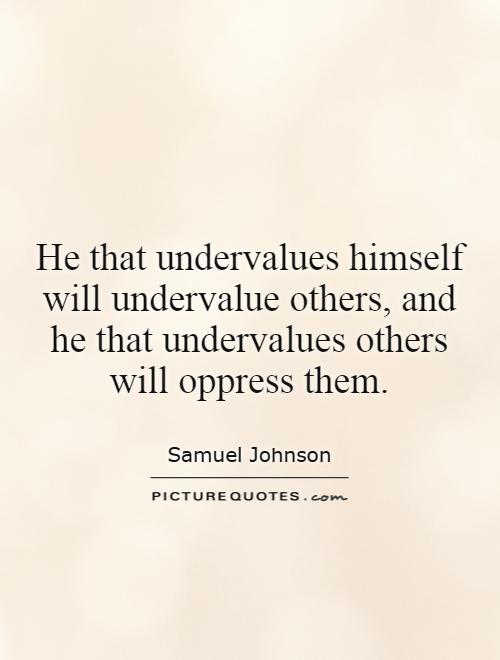He that undervalues himself will undervalue others, and he that undervalues others will oppress them

He that undervalues himself will undervalue others, and he that undervalues others will oppress them
Samuel Johnson, the renowned English writer, once famously said, "He that undervalues himself will undervalue others, and he that undervalues others will oppress them." This statement holds a profound truth that resonates through the ages and speaks to the interconnectedness of self-worth and the treatment of others.Johnson's words suggest that a person's perception of their own worth directly influences how they view and treat those around them. If an individual lacks self-esteem and undervalues themselves, they are more likely to project those feelings onto others. This can manifest in various ways, such as belittling, demeaning, or oppressing others in an attempt to elevate their own sense of worth. In essence, their own insecurities and self-doubt lead them to devalue and mistreat those they come into contact with.
Conversely, if someone undervalues others, it is a reflection of their own lack of self-worth. By diminishing the value of those around them, they seek to elevate themselves and assert their superiority. This behavior can lead to oppression and mistreatment of others, as they see them as lesser beings to be controlled or dominated.












 Friendship Quotes
Friendship Quotes Love Quotes
Love Quotes Life Quotes
Life Quotes Funny Quotes
Funny Quotes Motivational Quotes
Motivational Quotes Inspirational Quotes
Inspirational Quotes